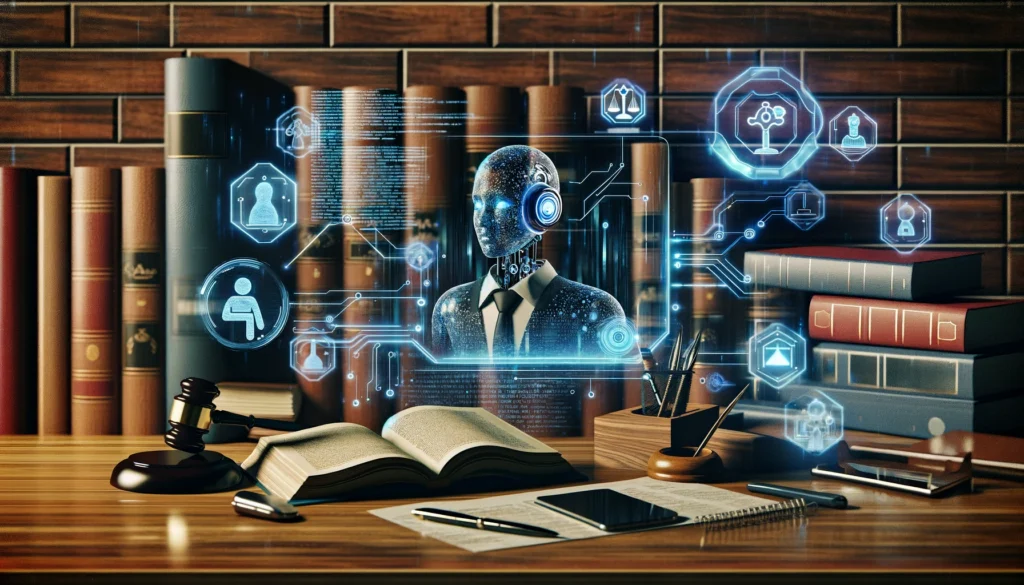
Harnessing AI for Estate Planning: A New Era
In today’s highly digital world, managing estate plans involves much more than physical assets. The importance of incorporating digital assets into these plans cannot be overstated. This is where artificial intelligence (AI), particularly ChatGPT, steps in, offering unprecedented assistance to paralegals by streamlining digital asset management.
ChatGPT’s capabilities can revolutionize how digital assets are handled, from organizing information to generating documentation, thereby significantly enhancing efficiency and accuracy.
Understanding Digital Assets in Estate Plans
Digital assets encompass a wide array of online property, ranging from social media accounts and email, to digital currencies and online subscriptions. As the reliance on digital tools grows, so too does the necessity of incorporating these assets into estate plans.
Paralegals face numerous challenges in managing digital assets:
- Identifying all digital assets
- Gaining access and legal control
- Ensuring proper documentation and compliance
ChatGPT bridges these gaps by offering advanced text generation capabilities that can categorize and list digital assets with extreme precision, thereby streamlining the entire process.
Also read:
Effective Prompt Engineering: Unlocking ChatGPT’s Full Potential
Prompt engineering is pivotal in extracting the full utility of ChatGPT. It involves carefully crafting inputs to elicit the most accurate and useful outputs from the AI.
To achieve precise and effective prompts, consider the following best practices:
- Specificity: Use clear, detailed instructions.
- Context: Provide adequate context to reduce ambiguity.
- Goals: Define the desired outcome clearly.
Examples of Nuanced Prompts:
- Inventory Creation: “List all digital subscription services under John Doe’s name, including usernames and renewal dates.”
- Categorization: “Categorize the following digital assets into social media, financial accounts, and email services.”
- Verification: “Verify and list all access credentials for Jane Smith’s cryptocurrency accounts.”
With these prompts, you can streamline your workflow while ensuring accurate and comprehensive documentation of digital assets.
Also read:
Automation of Routine Tasks: Save Time, Reduce Errors
Routine tasks, such as generating templates, drafting documents, and organizing data, often consume significant time and resources. ChatGPT can automate these processes, thereby improving both speed and precision.
Specifically, ChatGPT can be employed for:
- Template Creation: “Generate a template for a digital asset inventory list for estate planning.”
- Document Drafting: “Draft a standard letter requesting access to a deceased’s digital accounts.”
- Data Organization: “Organize the following digital accounts by type and importance.”
By using AI for these repetitive tasks, paralegals can focus on more complex elements of estate planning, ensuring both accuracy and consistency in their documentation efforts.
Also read:
Enhanced Client Communication: Personalized and Efficient
Effective client communication is critical in estate planning. ChatGPT can assist in drafting personalized emails, status updates, and detailed explanations.
Using AI, paralegals can craft tailored client messages with prompts such as:
- “Draft an email to a client providing a status update on their digital asset review.”
- “Create a clear explanation of how digital assets will be managed in John Doe’s estate plan.”
This not only ensures a professional and personalized tone but also saves time in maintaining consistent and efficient client communication.
Also read:
Navigating Legal Compliance and Security Concerns
The integration of AI tools like ChatGPT necessitates strict adherence to legal standards and security protocols to protect sensitive information. ChatGPT plays a vital role in compliance through:
- Generating documents that meet legal standards
- Ensuring data privacy and confidentiality
To address ethical concerns, it is essential to implement secure data handling practices. Paralegals must remain vigilant about the information shared with AI tools to prevent potential breaches of confidentiality.
Also read:
Advanced Discoveries: Insights and Analysis
Analyzing and interpreting large volumes of data is a complex, time-intensive task. ChatGPT simplifies this by offering advanced insights and generating detailed reports. Specific prompts for deeper analysis include:
- “Analyze the following list of digital assets and generate a summary report.”
- “Identify patterns and trends in the digital transactions of the estate.”
These advanced capabilities enable paralegals to uncover valuable insights, aiding in more informed decision-making.
Also read:
Future Prospects: Evolving Roles and AI Integration
As AI continues to evolve, the role of paralegals will transform, focusing more on strategic oversight rather than routine tasks. The integration of tools like ChatGPT will further enhance the efficiency and accuracy of estate planning practices.
The future presents exciting prospects for AI’s role in legal settings, making ongoing adaptation and exploration imperative for paralegals.
Also read:
Conclusion: The New Paradigm for Paralegals
Leveraging ChatGPT for the management of digital assets marks a transformative advancement in estate planning. By embracing this technology, paralegals can enhance productivity, ensuring more accurate and efficient service delivery. Continuous exploration of AI tools will be key to maintaining this progressive trajectory.


